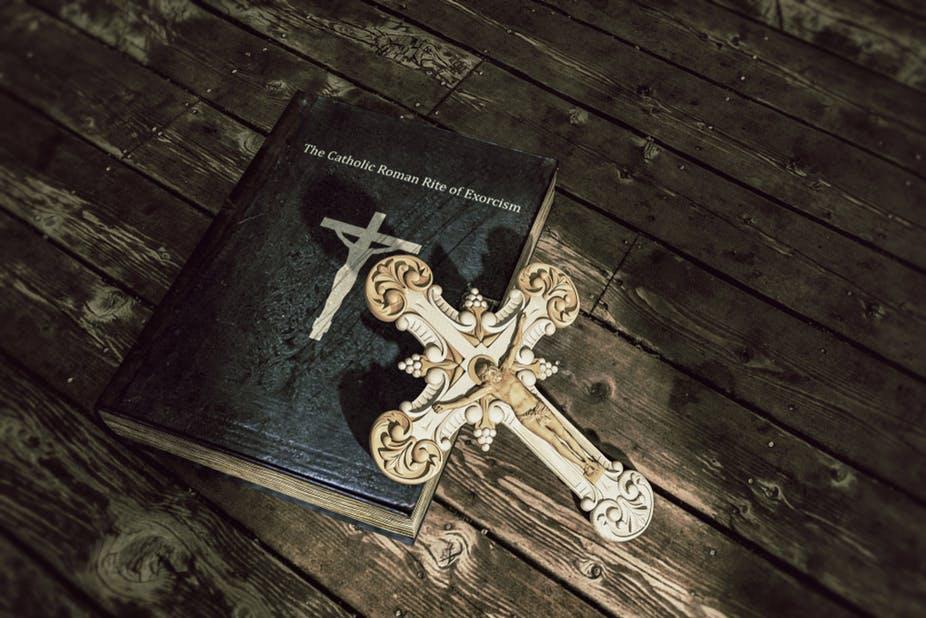Exorcism – how does it work and why is it on the rise?
The Vatican has announced a training course to meet growing demand for exorcists

Exorcism is again in the news, as the Vatican announces a new training course will be held to meet increased demand for deliverance ministry. So what does this actually mean, and should it be a cause for reassurance or concern? Newspaper headlines about a “rise in possessions” may bring to mind horrific scenes from The Exorcist, but sensationalism doesn’t help public understanding of a serious and complex reality.
Broadly speaking, exorcism signifies freeing a place, person or even object from some form of negative spiritual influence. Beliefs and rituals which could appropriately be labelled exorcism are found in almost all cultures and faith traditions, but in the West are encountered most frequently within Christian or Islamic settings.
It is important to emphasise that within both Muslim and Christian circles, however, there is a wide spectrum of opinion about exorcism and its place in the 21st century. For instance, there are theological voices within Roman Catholicism and Anglicanism which would deny the existence of demonic entities altogether – but institutionally, these churches do accept the possibility of human possession and provide for specialist ministry in such cases.
The reality within these churches is very different from the picture presented by Hollywood. These matters are only dealt with by specially trained priests and always with the minimum of publicity.
How it works
A key element of the training is to help priests discern whether the cause of the problem relates to mental health or emotional issues, rather than anything supernatural, and to support the person in seeking appropriate help. Indeed, exorcism rites should never be carried out without medical assessment by a suitably qualified doctor.
Consequently, providing a training course for deliverance ministers should not be straightforwardly translated as an endorsement of the idea that there has been a perceived sudden increase in demonic activity. What it really means is that the Church is experiencing a growing number of people coming and seeking help because they feel themselves to be suffering from spiritual evil.

The causes of this increased demand are a matter of debate, but there are voices expressing reasonable concerns that a growing recourse to exorcism rituals may lead to vulnerable people being harmed. After all, not all religious organisations have structures or controls to safeguard participants.
For Anglicans and Roman Catholics, tight regulation is in place – because exorcism is an exceptional practice which involves people who will always be fragile, and may often be ill. When carried out, the rite will involve spoken prayers, readings from scripture and sometimes the gentle laying-on of hands. Authorised exorcism will never include any violent contact, touching in intimate areas or interaction which could be interpreted as having sexual connotations. The term “deliverance ministry” is preferred to “exorcism”, and it is seen as part of the Church’s broader ministry of healing.
In contrast, within some other traditions, for instance some forms of Pentecostalism and Charismatic Evangelicalism, exorcism is seen as routine and many members of the community receive it without worry or stigma – almost akin to purifying rituals. Those undergoing them are not necessarily at risk, but there is always the danger they could be.
In a liberal, democratic society, the state does not seek to make value judgements in relation to the religious choices of citizens. Without good reason, there is no justification for limiting the freedom of individuals to express their faith as they see fit. It would be difficult to argue for secular regulation of exorcism across the board.
But equally, it would be irresponsible to ignore the challenges which some exorcism practices can present. There have been a number of tragic cases of people, children as well as adults, dying as a result of exorcism rituals in the UK and elsewhere. There is also ample evidence of people who feel that they were subjected to rituals to which they did not properly consent, or were kept from accessing medical treatment or other forms of support for some time, prolonging their suffering and the distress to those around them.
The law
In some respects, the law in England and Wales is clear. Where children are concerned, child abuse is child abuse, regardless of the motivation behind it. If a child is suffering, or at risk from harm which is sufficiently serious, then public authorities need to act – and they are required to do so.
Where adults are concerned the picture is much more complicated. Some faith groups practice exorcism rites which involve a degree of violence – the understanding is frequently that the evil spirit is occupying the body, and so by making the body an uncomfortable place to be, it can be driven out.
This is especially dangerous, because pleas to stop can be interpreted as coming from the demon rather than the sufferer. Here, consent – even if given – will probably not avail a defendant if the victim suffers actual bodily harm (anything more than “transient or trifling” injury).
In many Western countries, exorcists have considerable freedom. And there is still clearly demand for them. But this is an ancient ritual which must very much stay on the right side of the modern law.
Helen Hall is a senior lecturer at Nottingham Law School, Nottingham Trent University. This article was first published on The Conversation (theconversation.com)
Join our commenting forum
Join thought-provoking conversations, follow other Independent readers and see their replies
Comments
Bookmark popover
Removed from bookmarks